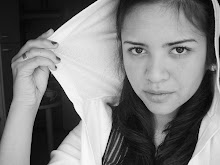According to what I have learnt in English Literature during this semester, I believe that the most impresive, interesting, full of feelings and emotions type of literature is poetry. That is why, the purpose of my essay will be; how to work with poetry in the classroom considering the reader centered approach. For that, I will present one poem, What would you fight for? by D.H Lawrence, in which I’ve found several and interesting topics to present to my students. Moreover, I will explain and relate the poem to an EFL lesson considering students’ interests and needs. Apart form that, I will explain how teachers can create a comfortable and enriching athmosphere by having different activities centered in poetry.
There are several definitions for the concept poetry, but in my opinion poetry is the way the writer expresses what he feels according to his own point of view about things. The writer tries to express a vision he percieves about the world, a vision that is full of emotions and feelings. It is also important to bare in mind that poetry is more than words that have an armonic sound, they are words specifically selected for a purpose, the reader response. The writer chooses the words to create a message, not to make them look beautiful in a piece of paper.
Poems have the capacity of moving us deeply in an unknown world. They can transport the reader back in the past, here in the present and beyond in the future. But, obviously there is an individual who utilizes all his thoughts, emotions and imagination to create this amazing works named poems. That is to say, everything written in the poem comes from the author’s background. For example there a lot of poems that talk about the Wars or desasters that happened in the world. There are other authors who enjoys talking about death, nature or mithological concepts. On the other hand, there are poets that write about human relationships, class issues and the natural wordl, that is the case of the fantastic D.H Lawrence.
David Herbert Lawrence is an English writer who was born in Eastwood, Nottinghamshire, England 1885. His father was a miner and his mother a house-wife. Lawrence went to the Nothingham’s university and he succesfuly graduated. Years later he graduated as a schoolmaster in London. His poetry was first published in 1909. The writer got married with Frida Von Richthofen. During that time, the World War I forced them to stayed in England. For that reason Lawrence started to write several works against the war. He was always moving between England, the USA, Mexico, Australia. The travelling experiences gave him the possibility to learn more about different cultures and languages, which, obviously, had a big influence on his wrting style. Lawrence’s style always expressed passion and love. I realized about it, because I have been reading several poems written by him. He didicated his writing to controvertial social and human issues, for example middle and low class problems and how people deal with the different penomenas the world has.
The following poem is the one I chose to be presented in an EFL lesson with High School students. Basically, I decided to work with it because I think that pupils who are in 9th,10th, 11th or 12th grade, have to be thinking about what to do in their future. They will be leave school sooner than they think so, I believe it is essential they will know what to do and what to persue when they finish school.
What would you fight for?
I am not sure I would always fight for my life.
Life might not be worth fighting for.
I am not sure I would always fight for my wife.
A wife isn't always worth fighting for.
Nor my children, nor my country, nor my fellow-men.
It all depends whether I found them worth fighting for.
The only thing men invariably fight for
Is their money. But I doubt if I'd fight for mine, anyhow
not to shed a lot of blood over it.
Yet one thing I do fight for, tooth and nail, all the time.
And that is my bit of inward peace, where I am at one
with myself.
And I must say, I am often worsted.
D.H Lawrence
Giving a brief explanation about the poem, I believe that Lawrence is stablishing that we should always have a purpose in life. It is not worth to fight for something that we do not know or it just does not make any sense for us. Every situation we live through our life has a purpose, has a final meaning, but we have to make an effort to discover what the meaning is. The only way to do that is by realizing if that specific situation could have an impact in our lives. We have to analyze and think what pros and cons the action could bring. Moreover, by considering the word money, the poet wants to express that people are fighting for materialistic things, and people do not even essitate when money appears. That is to say, that some of them could die or even kill for money. But, after some negative and ironic concepts, the author expresses that he would fight for his own personal inward peace. That is our safe place, our secret moment when we can think and analyze our life, acts and experiences.
After presenting the poem, and according to the reader-centered approach, it is important that we leave our students to construct their own knowledge. We, teachers, have to encourage them to exchange their view points with others, but also respecting the different opinions may appear. Clearly, the poem represents aspects students will find in their lives, that is why I think is interesting to work with it. As I have learned, literature must be discussed in the classroom. It is important that we can hear several points of view and help our students to construct their own ideas about, poems.
According to the activities we can use in an EFL lesson, it will be very interesting to work with Journals, in which readers will freely express their feelings and thoughts about what they read. We can also ask them to write a report about the poem, for example rewrite the poem from a different point of view, write a story about the poem, etc. Moreover, they can create their own poem, maybe talking about their experiences of fighting for an specific situation.
As a conclusion, I took poetry as an enriching and thoughtful experience to be used in class by sharing new ideas and feelings with my students. Moreover, it is important that teachers consider how to present it, so that students do not feel afraid of knowing poetry. Furthermore, it is also important that we could give students previous knowledge about authors and types of wrtiting, that way they will feel more familiarized with the topic. Besides, we have to bear in mind that by the analysis of a poem students are going to comprehend, feel and live the authors’ thoughts. During this process, we have to encourage students to have their own ideas about what they read; no matter if they want to do it aloud or in a piece of paper, but the idea is that they can express what they feel. By poetry, students should be living intense, rich and deep feelings and experiences because poetry is a gift to open students’ minds.
Bibliography
• Elliot, Joan. Dupuis, Mary. Young Adult Literature in the Classroom. Newark, Delaware : International Reading Association , 2002.
• Lawrence, D.H. Estudios Sobre Literatura Clásica. Emece, Buenos Aires. 1948.
Links
• http://www.literaryhistory.com/20thC/Lawrence.htm
• http://en.wikipedia.org/wiki/D._H._Lawrence
• http://www.lawrenceseastwood.co.uk/
Describing myself...Who am I?
13 years ago






No comments:
Post a Comment